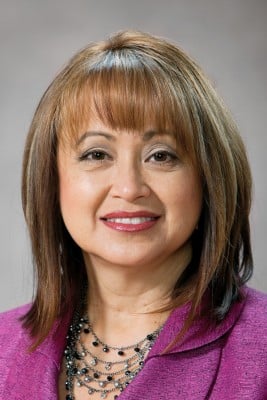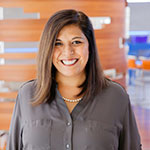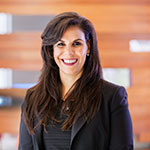
“At MassMutual, we see beyond the traditional definition of diversity,” reads the opening letter of Massachusetts Mutual Life Insurance’s 2012 Diversity & Inclusion Report, penned by CEO and president Roger Crandall and vice president and chief diversity officer Lorie Valle-Yañez. “To us, diversity includes the broadest possible range of cultures, backgrounds, experiences, and perspectives. Our goal is to welcome and include diversity and inclusion in all its forms. We believe it’s the right thing to do.”
Many companies now understand that implementing a diversity strategy is the key to recruiting, grooming, and retaining the type of people they need to grow as a business. At MassMutual, more precisely, “it is about mirroring the marketplace so we can reach and serve an increasingly diverse customer base,” Valle-Yañez says. “This is integral to the company, both in how it functions internally and how it approaches the outside world.”
Valle-Yañez explains that implementing a diversity strategy has much to do with tracking the success of that strategy. “We’re always looking at qualitative and quantitative measurements. We measure and track the diversity of our customer base, sales force, suppliers, executives, and employees. We measure the engagement levels of our employees, the inclusiveness of our culture, and the diversity of our leadership ranks. We use metrics, dashboards, and benchmarks to inform and guide our efforts every step of the way,”
she says.
On the execution side of that strategy, MassMutual is launching major initiatives, both internally and externally. Internally, the company has set up nine different employee resource groups (ERGs), which are intended to encourage employees with similar backgrounds or interests to meet, network, and contribute to the company’s business strategy.
“The people who belong to these groups are the grassroots leaders of our diversity and inclusion efforts,” Valle-Yañez says. “They help the business achieve its goals and grow our customer base. They also help us recruit and on-board employees with varied backgrounds.”
MassMutual also has several different mentoring programs to encourage cross-gender, cross-cultural, and cross-generational matches. The Open Mentoring program encourages people to go online and establish partnerships with others in various business units and locations company wide.
MassMutual
Employee Resource Groups
Passages: African-American/Black
Pride: LGBTA
ALMMA: Association of Latinos at MassMutual & Allies
Young Professionals
Asian
EASE: Enable, Achieve, Succeed, Empower People with Disabilities, Caregivers & Allies
AFVF: Armed Forces, Veterans, & Families
MassMutual Memphis Multicultural
Women’s Leadership Network
There is also a Partners Mentoring program, in which high-potential employees are matched with senior-level executives to help them advance in their careers, as well as a Reverse Mentoring program, in which millennials mentor senior leaders. One such mentee says her mentor taught her how to use Instagram, Pinterest, and Twitter.
Since launching its diversity and inclusion strategy in 2008, MassMutual has increased its commitment to multicultural initiatives via programs such as the FutureSmart Challenge, which encourages middle-school students to make smart educational and financial choices. Another, called the Society of Grownups, offers free and low-cost classes on life skills, financial planning, and money-related topics—like buying a home and opening a bank account—to help young people learn in a stress-free, peer-oriented environment. And a free life insurance program called LifeBridge helps children afford an education in the event a parent or guardian passes away. The company has provided more than $625 million in free life insurance coverage via the program over the past twelve years.
“These initiatives, as well as our scholarship and educational reimbursement programs, help demonstrate that diversity isn’t just about cultural or ethnic differences, but about providing broad exposure and access to financial education and opportunities to anyone who doesn’t have them,” Valle-Yañez says, “so the playing field can truly become more equitable for everyone.”
She knows this from experience. Valle-Yañez earned her bachelor’s degree while working as a single mother and credits her former employer, the Lawrence Livermore National Laboratory, with helping cover her educational expenses. She recommends getting as much education as possible, but also urges people of all backgrounds to join professional organizations to gain skills and connections. She herself belongs to several, including the Association of Latino Professionals for America (ALPFA) and the Hispanic Association on Corporate Responsibility (HACR).
As a first-generation American, Valle-Yañez knows the narrative that brings new immigrants to the United States. Her father was born in the Philippines and her mother in Nicaragua. Her varied perspective has proven beneficial both to Mass Mutual and nonprofit professional organizations like ALPFA and HACR. “I began to develop my intercultural competency at a young age,” she says, “and my multiethnic background makes me more effective in my roles.”

